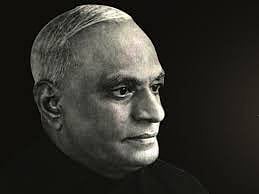Varahagiri Venkata Giri, the fourth President of India, was born in Odisha's Berhampur. The politician and activist came from a family associated with the Indian National Congress and freedom struggle which likely influenced him to follow a similar path.
VV Giri was born to Telugu-speaking family in Madras Presidency on August 10, 1894. His father VV Jogayya Pantulu was a successful lawyer and political activist and his mother Subhadramma was active in the national movement in Berhampur and led Civil Disobidience Movement in town.
Giri, who is alumnus of Khallikote College (Madras University affiliate), also joined freedom struggle leaving behind a flourishing legal career. The Bharat Ratna recipient is fondly remembered for his contribution to Indian freedom struggle, for voicing concerns about labour law and social equality.
Here are some facts to know about the former president of India:
VV Giri was the only independent candidate who was elected to the highest Constitutional post. He also was the only politician who served as acting President twice in the history of India.
Before joining politics, Giri was a lawyer. He after returning from Ireland had enrolled in Madras High Court. But he later abandoned his career after Mahatma Gandhi called for Non cooperation movement.
VV Giri has been a part of several labour and trade union movement in India; he was also part of Annie Besant's Home Rule Movement.
Giri, in 1922, was arrested for protesting against sale of liquor. He was then arrested for the second time following the launch of Quit India Movement two decades later.
Giri, in independent India, held positions as Union Minister of Labour, Governor of Kerala, Karnataka and Uttar Pradesh states.
Soon after his term ended, Giri was awarded with Bharat Ratna which is India's highest civillian award for his contributions.
Giri has also authored two books on issues of labour in India titled: Industrial Relations and Labour Problems in Indian Industry.





